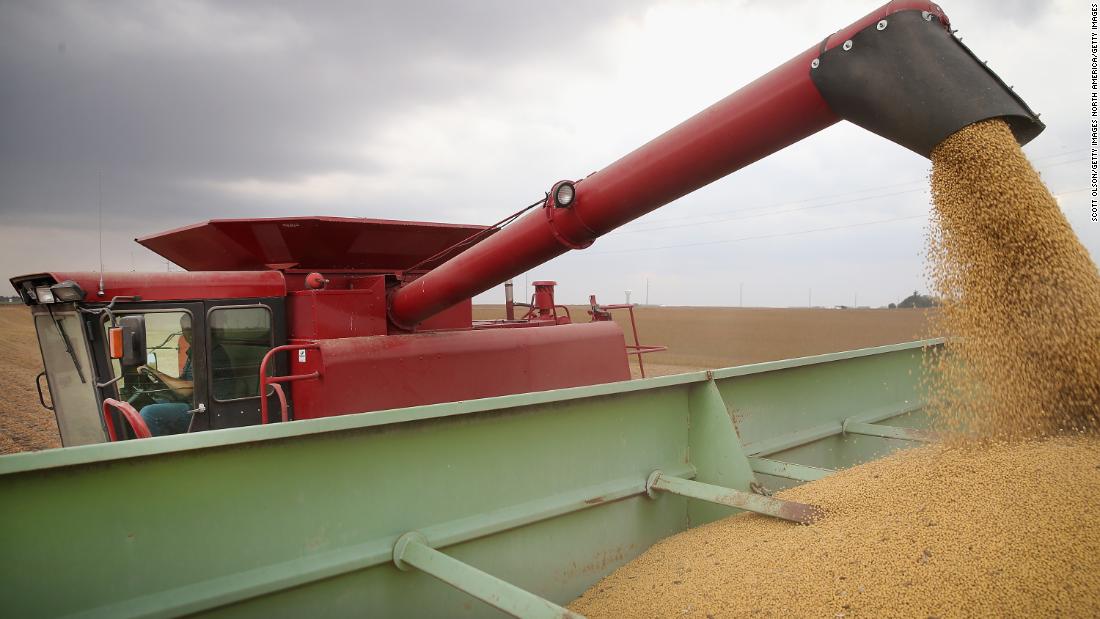The halt in purchases
comes in response to the Trump administration’s announcement of new tariffs on Chinese imports last week, China’s Commerce Ministry said Tuesday morning. The
new 10% tariffs on $300 billion worth of Chinese imports are set to take effect on September 1.
China’s Commerce Ministry called the new tariffs a “serious violation of the consensus reached by the two countries’ leaders in Osaka.” At the
June G20 meeting in Osaka, American and Chinese officials had agreed to a cease-fire in the trade war.
State media had earlier quoted officials as saying Chinese companies had ordered US agricultural products after the Osaka summit, but some deals fell through due to “competitive pricing.”
China’s State Council Customs Tariff Commission also “will no longer rule out levying import duties on US agricultural products purchased after August 3,” according to the Commerce Ministry statement.
The latest salvo in the trade war sent
global markets plunging Monday. In addition to the halt in American agriculture purchases, China
devalued the yuan Monday morning, sparking fear that the United States could retaliate.
The US Chamber of Commerce warned last week that new tariffs “will only inflict greater pain on American businesses, farmers, workers and consumers, and undermine an otherwise strong US economy.”
China’s halt of US agricultural purchases will hurt America’s farmers in dire need of relief. The trade war has forced Washington to come to the rescue of farmers with billions of dollars in aid. Delinquencies on agriculture loans have tripled since mid-2015 to eight-year highs, according to the
St. Louis Federal Reserve Bank.FDIC Chairman Jelena McWilliams
told CNN Business last week that the agency is “monitoring very closely” how banks in farm states are being impacted by the trade war.
“We may experience more delinquencies, which then become very difficult for those communities and our ag sector,” McWilliams said.

